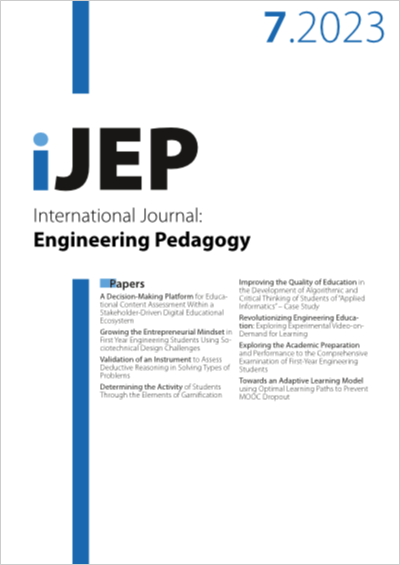Growing the Entrepreneurial Mindset in First Year Engineering Students Using Sociotechnical Design Challenges
DOI:
https://doi.org/10.3991/ijep.v13i7.41667Keywords:
First-year engineering education, Sociotechnical, Engineering design, Entrepreneurial minded learningAbstract
Engineering graduates must acquire both technical knowledge and a diverse range of professional skills to effectively address the current global challenges. Equally important is a profound understanding of how technological solutions are influenced by the human and natural environments in which they are implemented. An open-ended, team-based design challenge integrates entrepreneurial-minded (EM) skill development into an interdisciplinary first-year engineering course that approaches engineering from a sociotechnical perspective. A mixed-methods study using a post-course reflective questionnaire explored students’ self-perceived development of EM skills. Quantitative results from a series of 5-point Likerttype questions indicate that students felt they developed EM skills in all three areas of the 3-C framework, with average mean scores above 4.0 in all three categories. Scores were significantly higher in the Connections and Create Value subscales (mean 4.31 ± 0.62 and 4.23 ± 0.76, respectively) compared to the Curiosity subscale (mean 4.04 ± 0.84). Student comments on open response questions support the overall value of the project and the broader sociotechnical learning outcomes that were achieved. Overall, this study suggests the effectiveness of incorporating open-ended, sociotechnical engineering design challenges to develop skills that will better prepare students for collaborative work on complex, interdisciplinary problems they may encounter in their professional careers.
Downloads
Published
How to Cite
Issue
Section
License
Copyright (c) 2023 Jan DeWaters, Bhavana Kotla

This work is licensed under a Creative Commons Attribution 4.0 International License.



